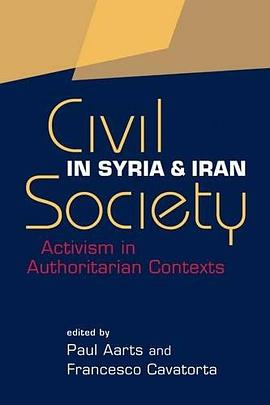

具体描述
This book explores the epistemic side of oppression, focusing on racial and sexual oppression and their interconnections. It elucidates how social insensitivities and imposed silences prevent members of different groups from interacting epistemically in fruitful ways-from listening to each other, learning from each other, and mutually enriching each other's perspectives. Medina's epistemology of resistance offers a contextualist theory of our complicity with epistemic injustices and a social connection model of shared responsibility for improving epistemic conditions of participation in social practices. Through the articulation of a new interactionism and polyphonic contextualism, the book develops a sustained argument about the role of the imagination in mediating social perceptions and interactions. It concludes that only through the cultivation of practices of resistance can we develop a social imagination that can help us become sensitive to the suffering of excluded and stigmatized subjects. Drawing on Feminist Standpoint Theory and Critical Race Theory, this book makes contributions to social epistemology and to recent discussions of testimonial and hermeneutical injustice, epistemic responsibility, counter-performativity, and solidarity in the fight against racism and sexism.
作者简介
目录信息
读后感
评分
评分
评分
评分
用户评价
当我读到关于“ epistemic injustice”的部分时,我感到了一种强烈的共鸣。作者以一种非常细致入微的方式,剖析了在知识的生产、传播和评价过程中,可能存在的各种不公正现象。他没有回避那些令人不适的议题,而是用清晰而有力的语言,揭示了偏见、歧视以及权力不对等如何影响我们对他人知识的信任和接受。我过去可能并没有意识到,有时候,即使我们主观上不带有恶意,我们的认知方式也可能无意中造成了对他人的“认识论上的不公”。这本书让我开始反思,我是否在某些情况下,因为对方的身份、背景或者社会地位,而低估了他们所拥有的知识和见解。这种自我反思的动力,正是这本书最宝贵的价值之一。它不仅仅是在讲述一个理论,更是在邀请我们成为一个更公正、更开放的认知主体。
评分读罢《The Epistemology of Resistance》的第一部分,我感到了一种思维的拓展,仿佛一道沉睡已久的门被缓缓推开。作者并没有一开始就抛出晦涩难懂的理论,而是以一种娓娓道来的方式,将我们带入了一个充满挑战的认知场域。他似乎在邀请我们一同审视那些被我们视为理所当然的“事实”和“真理”,去质疑那些看似牢不可破的叙述。我注意到,书中反复出现的“隐喻”和“框架”的概念,让我开始重新审视那些影响我们判断的语言和思想结构。比如,在讨论某些社会议题时,我们常常会不自觉地套用某些既定的框架,而忽略了框架之外的另一种可能性。作者的论述就像是一把手术刀,精准地剖析了这些认知上的“盲点”,迫使我们去思考,我们所相信的,究竟是我们独立思考的结果,还是被他人精心构建的认知景观所塑造?我尤其欣赏作者在引入复杂哲学概念时,所使用的恰当例子,它们使得那些原本可能遥不可及的思想,变得生动而易于理解。这种叙述方式,让我感受到一种智识上的共鸣,仿佛作者正在和我一同进行一场深入的探索,而不是单方面的灌输。
评分《The Epistemology of Resistance》让我对“反抗”这个词有了全新的认识。我之前可能更多地将其与街头运动、政治斗争联系起来,但作者的论述让我明白,反抗可以发生在更广泛的领域,它渗透在日常生活的方方面面。他对于“微观抵抗”的探讨,尤其让我印象深刻。那些看似微不足道,却充满智慧的个体行为,比如拒绝接受被灌输的观点,保留独立的思考空间,或者以独特的方式表达自我,都构成了对主流叙事的挑战。这种对个体能动性的强调,给了我很大的启发。它让我看到了,即使在看似无力改变大局的情况下,个体依然拥有通过认知和行动来抵抗不公的可能性。这本书的价值在于,它不仅提供了深刻的理论分析,更在潜移默化中,激发了我作为个体的力量感和责任感。
评分《The Epistemology of Resistance》为我打开了一扇通往更深层次理解的窗户。作者在书中展现出的那种跨学科的视野,让我感到惊叹。他能够自如地在哲学、社会学、文学批评甚至心理学之间穿梭,并将不同领域的思想融会贯通,形成一个具有独特视角的整体。我注意到,他在讨论“主体性”和“能动性”时,并没有将其视为先验的概念,而是强调它们是在与外部环境的互动中,在抵抗的过程中被塑造和实现的。这种动态的视角,让我摆脱了对主体性的刻板印象,认识到它是一种持续构建和争取的过程。我尤其欣赏作者对于“希望”的论述,他并没有将其描绘成一种盲目的乐观,而是将其看作是认识论上的一种策略,一种在艰难处境中坚持寻找可能性,并为此付出努力的内在动力。
评分阅读这本书的过程,就像是在进行一场持续的自我挑战。我发现,作者的论述总是能够触及我内心深处的一些固有认知,并迫使我去审视它们是否真的站得住脚。他并没有提供简单的答案,而是更倾向于提出问题,引导读者去独立思考。我特别喜欢他在探讨“集体记忆”和“历史叙事”时所展现出的敏锐度。他指出,我们所理解的历史,往往并非事实本身,而是经过选择、重塑和编码的产物。而那些被边缘化、被遗忘的声音,往往承载着另一种重要的“知识”,这种知识对于理解和反抗不公至关重要。这本书让我开始质疑,我们是如何被“教导”去理解世界的,以及那些被排除在主流叙事之外的知识,是否才蕴含着更深刻的真理。这种对“被压抑的知识”的关注,让我感到一种莫名的振奋,仿佛发现了一个未被开垦的宝藏。
评分这本书的封面设计就深深地吸引了我,那种带着些许压抑却又不失力量感的色彩搭配,仿佛预示着书中即将展开一场关于知识、反抗与生存的深刻对话。拿到书的那一刻,我迫不及待地想要翻开,期待着它能否像它的名字一样,为我揭示在困境中,我们如何去认识、去质疑、去行动。我对“认识论”这个词本身就充满敬畏,它触及的是人类最根本的认知方式,是我们如何构建世界观、如何辨别真伪的基石。而“抵抗”这个词,更是充满了反抗的张力,它意味着不屈服,意味着在不利环境中寻求突破。将两者结合,便勾勒出了一个引人深思的命题:在充满压迫和不公的世界里,我们的知识是如何形成的,又是如何支撑我们去抵抗的?我设想,书中一定会有对历史上的反抗运动的深入剖析,可能会涉及哲学、社会学、心理学等多个学科的交叉视角。我尤其好奇作者将如何处理“抵抗”背后的伦理困境,以及知识在其中扮演的复杂角色。是知识赋予了反抗者力量,还是反抗的实践本身创造了新的知识?这种辩证的思考,让我对接下来的阅读充满了期待。我希望这本书不仅仅是理论的探讨,更能引发我对自己生活经验的审视,看看在日常的细微之处,我们是否也在进行着某种形式的“认识论上的抵抗”。
评分总而言之,《The Epistemology of Resistance》是一部让我受益匪浅的书。它不仅拓宽了我的知识视野,更重要的是,它改变了我看待世界的方式。作者用一种充满智慧和洞察力的方式,带领我们深入探索了知识、权力和抵抗之间复杂而微妙的关系。我从中学习到了如何更批判性地审视我们所接收到的信息,如何去识别那些隐藏在语言和叙事背后的权力运作,以及如何在不公面前,找到属于自己的抵抗之道。这本书所倡导的“认识论上的勇气”,即敢于质疑,敢于独立思考,敢于为自己的认知负责,无疑是我在阅读过程中所获得的最宝贵的财富。我强烈推荐这本书给所有对知识、对社会、对人本身抱有深刻好奇心的人。它不会给你现成的答案,但它会给你提问的力量。
评分这本书的章节之间过渡自然,每一段论述都像是为下一段的展开铺垫了坚实的基础。我发现,作者在论证过程中,巧妙地将历史案例与理论分析相结合,这使得他的观点不仅仅停留在抽象的层面,而是具有了鲜活的现实意义。例如,在探讨“抵抗的合法性”这一议题时,他并没有简单地给出非黑即白的答案,而是通过回溯不同历史时期,不同文化背景下的反抗事件,来展现抵抗行为的复杂性和多面性。这让我深刻体会到,所谓的“正义”和“非法”并非一成不变,而是与权力结构、社会共识以及认知框架紧密相连。书中对于“沉默”和“缺席”的力量的论述,也让我耳目一新。我之前可能更倾向于关注那些公开的、激烈的反抗形式,但作者提醒我,有时候,恰恰是知识的拒绝传播、信息的故意遗忘,以及个体对主流叙事的消极回应,也能构成一种强大的抵抗。这种“消极抵抗”的认识论维度,是我之前从未深入思考过的,它为我理解当下的许多社会现象提供了新的视角。
评分这本书的语言风格非常有特色,既有学者论述的严谨,又不失一种诗意的表达。作者在字里行间流露出对人类认知困境的深切关怀,以及对自由和正义的坚定追求。我发现,他在引用历史人物和文学作品时,并非是简单的堆砌,而是将它们巧妙地融入到自己的论证之中,赋予了这些经典新的生命力。我尤其喜欢他对于“沉默的语言”的解读,他认为,有时候,那些未被说出口的,那些被压抑的,反而蕴含着最真实的意义。这种对“非语言”知识的关注,为我理解那些难以言说的经历和情感提供了新的框架。这本书让我意识到,认识论不仅仅关乎我们如何“知道”,更关乎我们如何“感受”,如何“体验”,以及如何在这个过程中,保持一种清醒的自我意识。
评分《The Epistemology of Resistance》并非一本轻松易读的书,但正是其深刻性和挑战性,才让它如此引人入胜。我必须承认,在某些章节,我需要放慢阅读速度,反复咀嚼作者提出的观点。然而,正是这种“慢阅读”,让我有机会去深入思考,去反刍那些复杂的概念。我发现,作者在构建他的论证体系时,非常注重逻辑的严谨性,每一个论点都建立在前一个论点之上,环环相扣。尤其是在探讨“知识的生产与权力”之间的关系时,他运用了大量的社会学和政治学理论,但并非照搬照抄,而是将其内化,并与认识论的视角相结合,提出了许多独到的见解。我印象深刻的是,书中对于“合法性”的批判性分析,作者挑战了那些将特定知识体系视为普适真理的观念,揭示了知识如何被用来维护现有权力秩序,以及如何被用来挑战它。这种对权力与知识之间关系的深刻洞察,让我对身边的社会现实有了更清晰的认识。
评分 评分 评分 评分 评分相关图书
本站所有内容均为互联网搜索引擎提供的公开搜索信息,本站不存储任何数据与内容,任何内容与数据均与本站无关,如有需要请联系相关搜索引擎包括但不限于百度,google,bing,sogou 等
© 2026 book.quotespace.org All Rights Reserved. 小美书屋 版权所有




















